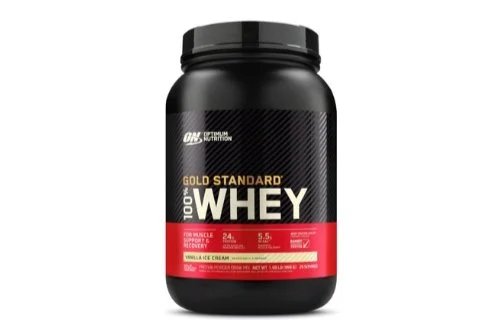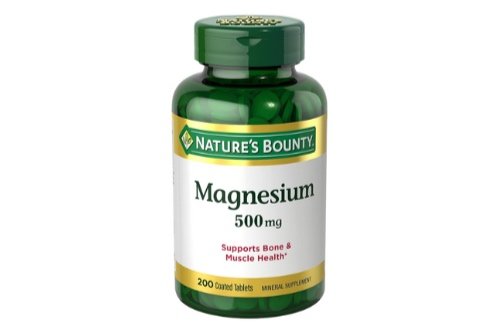Carnivore Diet and Post-Workout Nutrition
Optimal Recovery Foods Explained
The carnivore diet, a regimen centered on the consumption of animal-based foods such as meat, organs, eggs, and select dairy products, has been gaining traction among strength athletes and fitness enthusiasts. This diet is characterized by its exclusion of carbohydrates, particularly from plant sources, positing a departure from the conventional nutritional frameworks that emphasize a balanced inclusion of macronutrients. For those engaged in regular intense physical training, post-workout nutrition is critical for recovery and energy replenishment, and the carnivore diet's approach presents a unique set of considerations for these individuals.
Recovery after a workout is synonymous with restoring the body's energy stores, repairing muscle tissue, and adapting to the physical demands of exercise. It is well-understood that high-quality protein is essential for muscle repair and growth, a requirement that the carnivore diet potentially satisfies with its heavy emphasis on protein-rich animal products. The question for many adherents is how to optimize post-workout nutrition to support recovery while adhering to the strict dietary restrictions of a carnivore lifestyle.
In the context of the carnivore diet, replenishing glycogen stores, normally achieved through carbohydrate consumption, comes into question due to the diet's inherent low carbohydrate content. This has led to some exploration and strategic modifications among athletes to include varying amounts of carbs, particularly around workout times, to support muscle mass gains and recovery. Understanding how to manage post-workout nutrition while following a carnivore diet requires a nuanced view of nutrient timing, caloric surpluses, and the role of different food sources in healing and energy recovery.
The Carnivore Diet Basics
The Carnivore Diet emphasizes a high intake of animal products, focusing on proteins and fats, and excludes carbohydrates. It is distinguished by its simplicity and strict emphasis on animal-based foods.
Defining the Carnivore Diet
The Carnivore Diet, also known as a meat-only diet, is an eating plan that consists primarily of animal proteins and fats. It includes:
Red Meats: Beef, pork, lamb, and game
Poultry: Chicken and turkey
Seafood: Fish, shellfish
Organ Meats: Liver, kidney, and heart
Eggs: From chickens, ducks, geese
Dairy: Butter, cheese (preferably low or no lactose)
This diet excludes most or all plant-based foods, focusing on nutrients available from animal sources.
Benefits of Carnivore Diet for Athletes
Athletes may find benefits in the Carnivore Diet for recovery and muscle building due to its high protein content, which is essential for muscle repair. Animal fats provide a dense energy source, crucial for those with high caloric demands. The diet's simplicity can also make meal planning straightforward for athletes with busy schedules.
High in Protein & Fats: Critical for muscle synthesis and energy
Micronutrients: Rich in certain vitamins and minerals, like B12 and iron from red meat and omega-3 fatty acids from fatty fish
No Carbohydrates: Suggests potential for improved insulin sensitivity and fat metabolism
Carnivore Diet vs. Other Low-Carb Diets
Unlike the keto diet, which includes low-carb vegetables and sometimes allows for small amounts of fruits and nuts, the Carnivore Diet is more restrictive, excluding these elements entirely. Keto focuses on high fats with moderate protein intake to induce ketosis, while the Carnivore Diet typically results in a higher protein consumption.
Keto Diet:
Ketogenic focus
Allows non-animal products
Moderate protein, high fat
Carnivore Diet:
All animal products
High protein, high fat
No ketosis goal
Both diets limit carbohydrates but differ in their inclusion of plant-based foods and dietary goals.
Post-Workout Nutrition Fundamentals
Proper post-workout nutrition is crucial for recovery, replenishment of glycogen stores, and muscle mass growth. It involves the right balance of macronutrients and hydration to restore energy and facilitate the body's recovery processes.
Understanding Post-Workout Needs
Post-workout, the body requires nutrients to recover and repair muscle tissue. Glycogen stores, the primary source of energy for exercise, are depleted and need replenishing. Muscle recovery depends highly on the quality and timing of nutrients consumed after a workout.
The Role of Macronutrients
Protein: Essential for muscle repair and growth, a recommended intake post-workout ranges from 20-40 grams. Protein helps in triggering protein synthesis, essential for muscle growth.
Carbohydrates: Help replenish depleted glycogen stores. A ratio of 3:1 (carbs to protein) is often suggested to optimize recovery.
Fats: While not as critical as protein and carbs for immediate post-workout recovery, they are important for overall health and should not be entirely neglected.
Hydration and Electrolytes
Proper hydration is key for recovery. It helps all the body's systems function effectively and replaces fluids lost through sweat.
Electrolytes, such as sodium and potassium, are lost through sweat and must be replenished to maintain fluid balance and muscle function.
Water intake should be sufficient to restore hydration levels, with the addition of electrolyte-rich drinks when necessary, especially after intense or prolonged exercise.
Recovery Foods on the Carnivore Diet
Proper nutrition is critical for recovery after a workout, particularly on a carnivore diet which focuses exclusively on animal-based foods. This diet emphasizes the intake of high-quality protein, fats, and nutrient-dense options to support the body’s recovery process.
Best Animal-Based Proteins
On the carnivore diet, high-quality proteins are vital for muscle repair and growth post-workout. They should ideally come from a variety of meats to ensure a full spectrum of amino acids.
Beef: A top choice for protein, beef is rich in creatine and amino acids.
Chicken: Known for its lean protein, it helps in muscle recovery.
Fish: Offers omega-3 fatty acids and is considered high-quality protein.
Pork: Another protein source, although higher in fat than chicken.
Organ Meats: Packed with vitamins and minerals, these are often referred to as nature's multivitamins.
Incorporating Fats for Recovery
Fats play an essential role in the recovery process by aiding in the absorption of fat-soluble vitamins and providing a secondary energy source.
Eggs: Include both saturated and monounsaturated fats, and are also a complete protein.
Fish: Provides beneficial omega-3 fats which can aid in reducing inflammation.
Red Meat: Contains a healthy mix of saturated and monounsaturated fats.
It is important to balance fat intake with protein for optimal recovery.
Identifying Nutrient-Dense Options
Nutrient density is key on a carnivore diet to ensure the body receives all the necessary micronutrients for a full recovery.
Organ Meats: Liver and kidney are high in vitamins A, B, iron, and coenzyme Q10.
Bone Broth: Serves as a good source of minerals like calcium and magnesium.
Fatty Fish: Such as salmon, herring, and mackerel are not only high in protein but also in vitamin D.
Micronutrients found in these foods support the immune system, aid in muscle function, and contribute to overall health, making them excellent choices for post-workout nutrition on the carnivore diet.
Tailoring Your Carnivore Diet Post-Workout
Post-workout nutrition is crucial for recovery, muscle gain, and weight management. A tailored meal plan on the Carnivore Diet must meet individual caloric and protein needs to support these goals.
Meal Timing and Frequency
Meal timing after exercise is critical for optimizing muscle recovery and protein synthesis. It is generally recommended to consume a meal high in protein within 45 minutes to an hour post-workout. This aids in promptly replenishing the muscles. When it comes to frequency, aim for consistent meals spread evenly throughout the day to maintain nitrogen balance which is indicative of sufficient muscle protein intake.
Adjustment for Training Intensity
Training intensity directly influences calorie needs. For those engaging in high-intensity workouts, calorie consumption should match the energy expended to build muscle and recover adequately. Higher intensity often requires a caloric surplus, with a focus on increased protein intake to prevent muscle breakdown and support growth.
Customizing for Weight Management
Weight loss on the Carnivore Diet should still focus on high-protein foods to preserve lean muscle mass. On the contrary, for weight gain, one needs a strategic approach to eating in a caloric surplus. It's important to monitor body weight and adjust the meal plan accordingly, ensuring that the surplus is not so high that it leads to excessive fat gain instead of muscle.
Supplementation and the Carnivore Diet
While the carnivore diet provides a rich source of macronutrients, especially protein, it may lack certain micronutrients. Athletes on this diet need to be thoughtful about supplementation for optimal recovery and performance.
When to Consider Supplements
Athletes should consider supplementation if their dietary intake is not meeting nutritional needs. This can be influenced by factors such as the bioavailability of nutrients, the intensity of training, and individual health goals. Regular blood work can help identify specific deficiencies that may necessitate supplementation.
Recommended Supplements for Athletes
Creatine: Widely used for increasing power and strength during high-intensity exercises. Supplementation can support the natural creatine stores found in red meats.
Whey Protein: Beneficial post-workout to promote muscle repair and growth. Although the carnivore diet is high in protein, whey provides a quick and convenient source.
Electrolytes: Essential for hydration and muscle function. An electrolyte blend containing sodium, potassium, and magnesium can be helpful for recovery.
Magnesium: Crucial for muscle contractions and energy production. It might require supplementation, especially if dietary intake is insufficient.
If you're looking for creatine, whey protein, electrolyte blend, and magnesium buying it online is your best bet!
Monitoring Micronutrients
It's imperative for athletes to monitor their micronutrient intake to ensure they are not developing any deficiencies. Key micronutrients to watch include:
Vitamins: Particularly B vitamins and vitamin D, which can be lower on a strict carnivore diet.
Iron: Although red meat is a rich source of iron, levels should be checked regularly to prevent either deficiency or overload.
Magnesium: Involved in over 300 enzymatic reactions and can impact muscle function and recovery.
Regular nutritional assessments can guide the appropriate use of supplements to maintain optimal health and performance on a carnivore diet.
Common Concerns and FAQs
In this section, we examine frequent concerns around the Carnivore Diet, specifically related to post-workout nutrition and general health. We address questions about fiber intake, adapting to the diet, and its long-term feasibility.
Addressing Fiber and Gut Health
One may question how gut health is maintained on a Carnivore Diet given the absence of fiber-rich vegetables and fruits. The Carnivore Diet provides nutrients from animal products, which may support gut health differently than a diet including fiber. Individuals often find their gut adapts to the absence of fiber by reducing bloating and gastrointestinal discomfort commonly associated with high-fiber diets.
Navigating the Transition Period
Transitioning to a high-protein, low-carb diet can lead to temporary discomfort as the body adapts to new fuel sources. Initial symptoms may include fatigue, cravings, or digestive changes as the gut microbiome adjusts. This adaptation period varies for individuals, but staying hydrated and consuming adequate salt can help mitigate transition symptoms.
Long-Term Sustainability
The sustainability of the Carnivore Diet over the long term is a common question. Critics argue that the exclusion of vegetables, fruits, and other fiber sources can lead to nutritional deficiencies. Advocates suggest that animal products provide all the necessary nutrients without processed foods and carbohydrates found in a standard diet. However, individuals should consult with a healthcare provider to tailor the diet to their needs and monitor their health throughout.
Success Stories and Case Studies
The carnivore diet has undergone scrutiny and praise, particularly in the context of physical performance and recovery. Detailed below are experiences and scientific observations relating to different athletic disciplines, all attributing dietary changes to altered physical outcomes.
Athlete Experiences with the Diet
Athletes who have adopted the all-meat diet report varying results, with some claiming improved recovery times and a notable increase in overall performance. Case studies often highlight individuals who, after switching to a carnivorous eating regimen, experienced an uptick in muscle growth and muscle mass, suggesting a potential benefit for those in strength-dependent sports.
Bodybuilding and Resistance Training
Bodybuilding and resistance training advocates on the carnivore diet often emphasize the diet's simplicity and high protein content, which is essential for muscle repair and growth. Within this subset of athletes, reports indicate that consuming only animal products has helped some maintain lean muscle mass while potentially reducing body fat, though comprehensive scientific studies to back all claims are limited.
Endurance and Cardiovascular Health
Contrasting experiences arise in the realm of endurance and cardio enthusiasts, where a balanced and varied diet is traditionally recommended for optimal cardiovascular health. However, some individuals assert that the carnivore diet has bolstered their stamina and endurance levels. The elimination of plant-based foods has been controversial, with ongoing discussions regarding long-term implications for heart health within these athletic circles.
Conclusion
The carnivore diet, emphasizing the consumption of animal-based proteins, aligns well with the objectives of post-workout recovery and muscle growth. Post-workout, adequate protein intake is paramount for muscle recovery and to stimulate muscle protein synthesis, which is the process crucial for hypertrophy.
Nutrition: It primarily consists of meats, eggs, and some dairy, supplying essential amino acids.
Recovery: A high-protein meal post-exercise aids in repair and growth of muscle tissue.
Muscle Protein Synthesis: Animal proteins are complete sources and may effectively trigger this synthetic process.
The benefits of the carnivore diet for athletes include its simplicity and focus on high-protein foods, both staples for muscle repair. However, one should consider the potential need for additional nutrients that support overall wellness and not exclusively muscle gains.
To build muscle, athletes should ensure their post-workout meal is not only rich in protein but also consumed within a strategic timeframe following exercise. While the carnivore diet restricts carbohydrate intake, which can be a primary energy source, the diet's high protein can compensate by providing the necessary components for repair and growth.
In summary, individuals practicing the carnivore diet can optimize post-workout nutrition by focusing on timely and sufficient intake of high-quality animal proteins to support their recovery and muscle-building goals.








